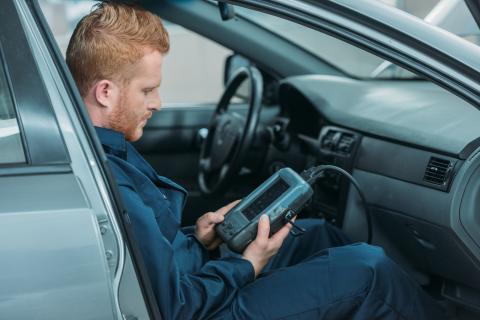How Emission Guideline Changes Will Impact Automotive Technology
The past few years have seen significant shifts in vehicle manufacturing regulations. New guidelines from the United States Environmental Protection Agency (EPA) and state legislatures are demanding fewer carbon emissions from cars. As a result, automotive technology is changing to meet the requirements. NYADI The College of Transportation Technology provides automotive training programs in Jamaica, New York. Here, we explore what these changes are, how they impact automotive technology, and what future automotive technicians can do to keep up with the industry.
Reducing Carbon Emissions from Cars
In March of 2024, EPA released strict new emissions guidelines that will apply to all cars built between 2027 and 2032. They aim to drastically reduce the amount of carbon emissions that newly manufactured vehicles can produce. The goal is to cut emissions in half by 2032.
On top of that, the EPA also gave California the green light to ban gas-powered cars and light trucks. By 2035, all new vehicles sold in CA will be electric. While CA leads the country when it comes to vehicle regulations, it’s possible that other states will follow suit with their own emission reduction timelines.
While these restrictions aren’t yet in effect, they’re already impacting the new car industry. Current manufacturing standards don’t meet the requirements. This means that manufacturers are under pressure to develop new emissions-reducing technologies. Investors follow suit by putting money into companies that prioritize low and no emissions – creating financial pressure to adapt.
The Rise of Electric Vehicles
In response to the regulation changes, most manufacturers are expected to shift to electric. In fact, the U.S. expects that 40% of newly manufactured cars will be electric by 2030. This percentage increases to 100% by 2040, even outside of California.
This introduces a variety of benefits to vehicle owners. For one, electric and low-emissions vehicles are becoming more efficient, effective, and affordable. Electric vehicles (EVs) are already cheaper to maintain, and new innovations will increase this disparity. It’ll also push the development of better, more widespread infrastructure for electric cars, making it easier for drivers to find chargers. Additionally, reducing emissions leads to slower climate change and improved public health.
Even manufacturers that stick to gas cars will need to adapt their approach. Improved fuel systems, catalytic converters, and new technologies may help to reduce emissions produced by gas engines, bringing those vehicles up to the new standard.
New Challenges for Automotive Technicians
As automotive technology changes, the repair industry needs to adapt. EVs are in some ways simpler to maintain and repair than gas-powered cars. However, they are fundamentally different. They also introduce unique topics and challenges, including:
- Battery degradation
- Charging problems
- Specialized diagnostic tools
- Unique maintenance routines
- Safety with high-voltage systems
- Electrical waste handling
Different problems and systems require different skill sets to repair them. EVs and even hybrid vehicles can’t be treated like gas-powered ones in the shop; they take a different approach. Electrical engines and computerized systems take as much IT knowledge as mechanical expertise. This takes specialized training. Automotive technicians need to understand how electrical components work and how they break. Otherwise, they risk getting left behind by the industry.
Choose the Right Training Institution
When it comes to learning the ins and outs of electrical vehicle repair, practical training is essential. This requires the opportunity to work hands-on with the latest technologies. Choosing a reliable institution like NYADI is one way to ensure quality training.
At NYADI, students get access to up-to-date equipment, including hybrid and electric vehicles. Our students work under the supervision of experienced instructors to practice servicing a variety of electrical systems. We also provide one-on-one tutoring as necessary to fill gaps in a student’s capabilities, giving them the resources and support they need to explore new challenges.
NYADI keeps students up-to-date on industry developments. As the country moves toward low-emission and electrical vehicles, we ensure our students are prepared for the industry they have chosen.
Become an Automotive Technician at NYADI
As new regulations require lower carbon emissions from cars, repair technicians must master new technologies. NYADI is located in Jamaica, New York, where we help professionals stay up-to-date with the latest developments in automotive manufacturing. We also offer financial aid for students who qualify. Contact an admissions representative today to learn more about enrollment.



